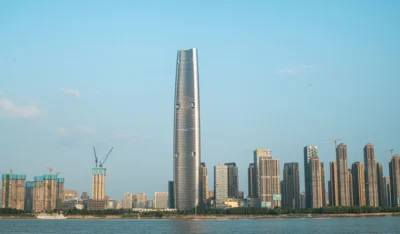Divorced homebuyers in Shanghai no longer eligible as first-time buyers
City adjusts rules to cease couples from forging divorces to pay less in residential property

Shanghai’s local authorities have implemented strict policies to control speculation in residential property, as well as regulations on property rights of divorced couples in the country’s most expensive housing market, reported the South China Morning Post.
According to the Shanghai Housing Bureau, divorced homebuyers are no longer eligible as first-time buyers for three years if they have purchased a property during their marriage. Such buyers won’t receive higher mortgage allowances, and they will need to put down more money up-front when purchasing a home.
This is an attempt to take measures on married couples who claim to be separated on paper to qualify for mortgage entitlement to purchase real estate. These efforts followed a 10.3 percent rise in the average price of live-in homes in Shanghai.
Sherril Sheng, the director of JLL in China, said, “the new regulation will curb the practice of fake divorces in China. It is a reasonable step to close loopholes.”
More: China’s average new house prices grew reasonably in December
As stated by Savills, sales of new homes increased by 21 percent in 2020, to a four-year record high of 9.2 million square metres. Business in the secondary market also surged by 82.7 percent.
In these claimed divorces, one party would claim ownership of the property, leaving the other entitled to first-home mortgage allowance. First-home buyers can borrow up to 65 percent of their property value, with mortgage allowance falling to 50 percent for the second property, and down to zero for the third.
“Following the principle of city-specific policies, if a city detects risk of overheating, the local government may tighten policies to stabilise expectations,” added Sheng.
These measures may only merely control the speed of Shanghai’s housing market, as average prices of new homes jumped 3.2 percent in 2020, while second-hand property rose 10.3 percent.
James Macdonald, research head at Savills China, said, “it is unlikely to have a meaningful impact on the overall market. The policy is primarily designed to close known loopholes, while not [placing any] restriction on demand from real purchasers.”
Recommended
6 developments driving Asia’s green real estate shift
Developers are being incentivised to push a green agenda into daring new realms
The Philippines’ LIMA Estate drives sustainable industrial growth
LIMA Estate models a citywide vision that uplifts workers while appealing to climate-conscious employers
Malaysia property market rebounds with foreign interest and growth
The nation’s property market is stirring to life, fuelled by foreign buyers and major infrastructure drives
China’s renewable energy surge redefines housing norms and development
From exporting solar panels to building entire green-powered neighbourhoods, China’s renewable surge is redefining housing norms







